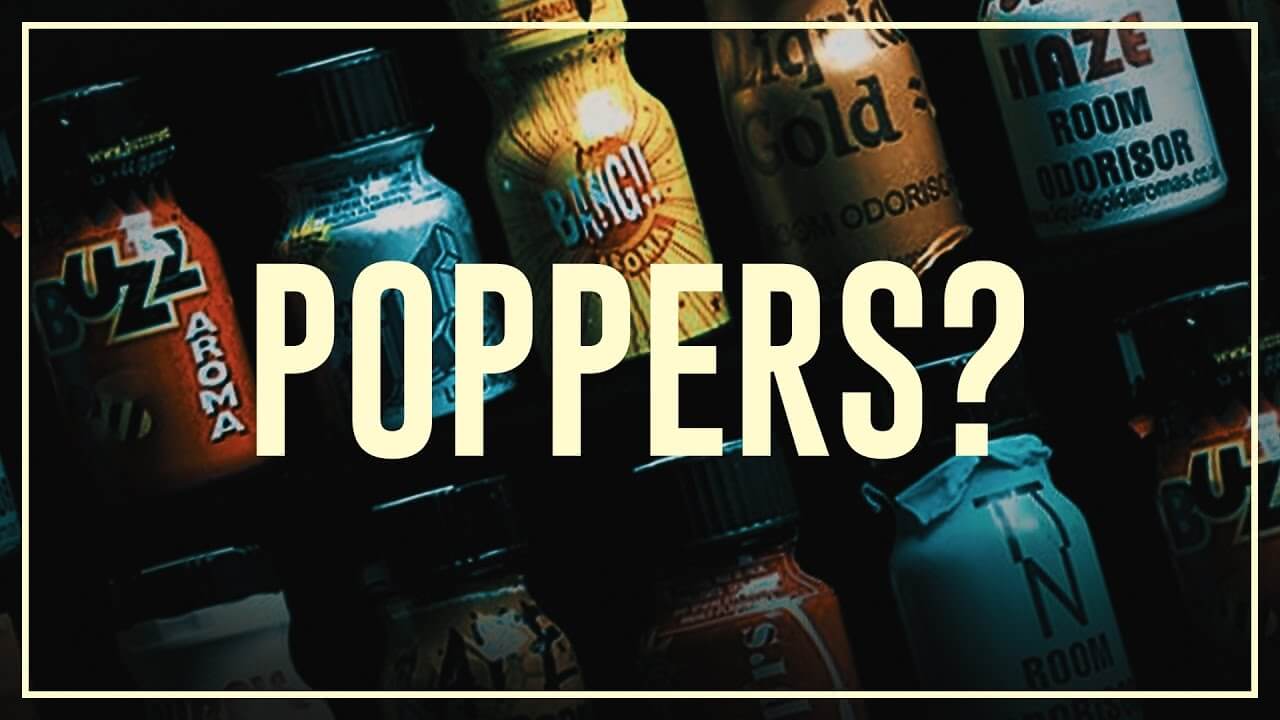A Fascinating History of Poppers

People started using the term poppers in the early 1960s, when amyl nitrite entered the market in form of capsules that people would crack or pop to release its chemical content. The amyl nitrite was already in use as one of the heart medicine. Antoine Jerome Balard synthesized amyl nitrite in the year 1844 and Sir Thomas Lauder Brunton popularized it as the best intervention for angina pectoris. After the gay community discovered that it was an effective recreational drug in the 1960s, people started using poppers for mental and physical relaxation; increased sexual arousal and to make anal sex less painful and easier. Today, they also used them for enhanced organism.
What are poppers?
Poppers are a general term for several chemical psychoactive drugs known as alkyl nitrites, particularly amyl nitrite – an inhalant drug. The amyl nitrite is the commonest type of poppers and some people misspell it as amil nitrate. Some people refer to poppers as butyl nitrite, liquid gold, room deodorizer and heart medicine. It is important to know exactly what are poppers due to them being classified as a drug.
How are poppers used?
Even though people rarely use poppers for heart related problems today, they use them to treat cyanide poisoning. People have been using them as recreational drugs, especially on gay scenes and they generally take them as fumes that they inhale directly from small bottles. Amyl nitrate is easier to acquire and inexpensive and some producers distribute it in the form of sex enhancers or room deodorizers. However, before you start using them, you should know that they carry several significant risks.
Their brief intense effects last for a few seconds to several minutes and therefore people use them adjunct to some other designer drugs like LSD and ecstasy. Even though most people have been using them for sex reasons, today they are using them to enjoy the immediate rush or the sensation of relaxation, euphoria, dizziness, intoxication and mood elevation.
The effects of poppers
Poppers works very fast to produce an instant “rush” or “high” of warm sensations in addition to feelings of dizziness – close to the sensation of alcohol intoxication. The effects come very fast after the drug inhalation but unlike alcohol or other drugs, they last for only a few seconds or minutes. Some individuals find the effects pleasurable, but some find it unpleasant and disorienting.
Poppers are vasodilators. In other words, after inhalation, they expand the blood vessels and lowers the blood pressure rapidly. That causes lightheadedness and at times, they can cause loss of muscle strength and consciousness, a situation known as syncope. Meanwhile, the heart beats at a faster speed including when the person is relaxed – a situation known as tachycardia.
The other known effect of poppers is the relaxation of sphincter muscles. For that reason, people use them to make their anal sex better. Some people claim that they increase the sexual sensations in addition to intensifying orgasm.
The side effects of poppers
Apart from the effects, poppers have several side effects. Some of the known side effects include:
- Skin lesions around the lips and nose
- Respiratory and sinusitis allergic reactions
- Headaches
- Heightened intraocular pressure
Who uses poppers?
Even though surveys that are more recent show that poppers are more common among gay men, young straight people are now going for them. That is because they relax the vaginal muscles and the throat a fact that makes them fit for people across sexuality spectrums. In Britain, over 12.8 percent of the male medical students have been using the poppers for recreational purposes.
Poppers are cheap, safe and easier buzz, with the ease of access and the short-term effects they provide. They work very fast to produce high rush of feeling of dizziness and warm sensations similar to those of extreme alcohol intoxication. Unlike other drugs, the effects will last for a few minutes or seconds.
839GYLCCC1992



Leave a Reply